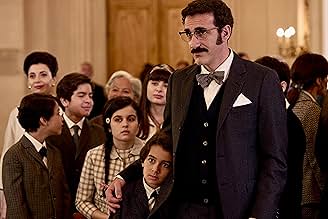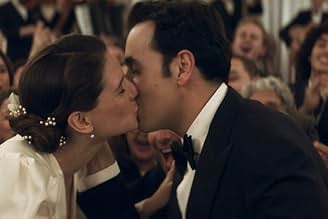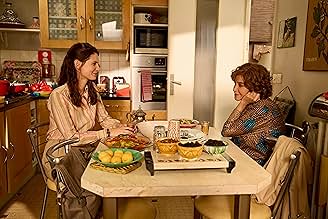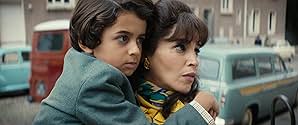This unlikely (for subjectmatter) new french success from revitalized (see recent "How to make a killing": separate Imdb review) grand producer Gaumont, proves wrong prejudices against both minority-spoofs and international coproduction-puddings, involving in this case France, Canada, even Amazon.
It takes Montréal based helmer Ken Scott, scripter of québecois hits "La grande séduction" (2003) and "Starbuck" (2011+multiple remakes) to pull off this warm and exuberant comedy set amongst jewish Moroccan immigrants to Paris in the 70's: the main character of the Mother is played by marvellous Leila Bekhti, the ecclectic thespian of algerian origins married to top actor Tahar Rahim (the "Prophet" by Jacques Audiard; little seen gem "Astragal" with Bekhti).
The son, standup comedian Jonathan Cohen, is very well directed like the rest of a plentyful cast including 6 young brothers and sisters, moving newcomer Lionel Dray as the modest father, Anne Le Ny the 'curandera', Jeanne Balibar as the feared social worker threatening the family, and a glam cameo by Sylvie Vartan herself, the diva of french rock ("yé yé") in the title, whose songs play a defining role in the life of young Roland, from age 2 to 42...big time lawyer Roland Perez (real story) was born with a clubfoot, speaks little, learns to read and write at home from Vartan's songs on tv and eventually rallies school "on his own two feet", thanks to his mother's ferocious resolve, imagination and talent for achieving "miracles", in this life: anyone with a chinese tiger or jewish mother (not just Woody Allen or Romain Gary), knows the struggles and exagerations shown on screen, which stretch the film a little, are plausibile or at least possible, and that keeps the movie endearing for viewers.
I saw it in France with my former boss born in Algeria, that really wanted to catch it but was kind of embarrassed to ask his grown up children or feared a snub from high minded friends...that took me back 45 years to austere Geneva, where we skipped classes with my best friend G to go see the forefather of french jewish comedies (Alexandre Arcady's "Le coup de sirocco" set in Morocco): we sat upstairs in a dark corner of the gallery, sure to be alone in the cinéma, until the first gag, went down and below bursted dozens of guilty, grateful and loud laughs from a happy audience, just like last week in Paris.
















